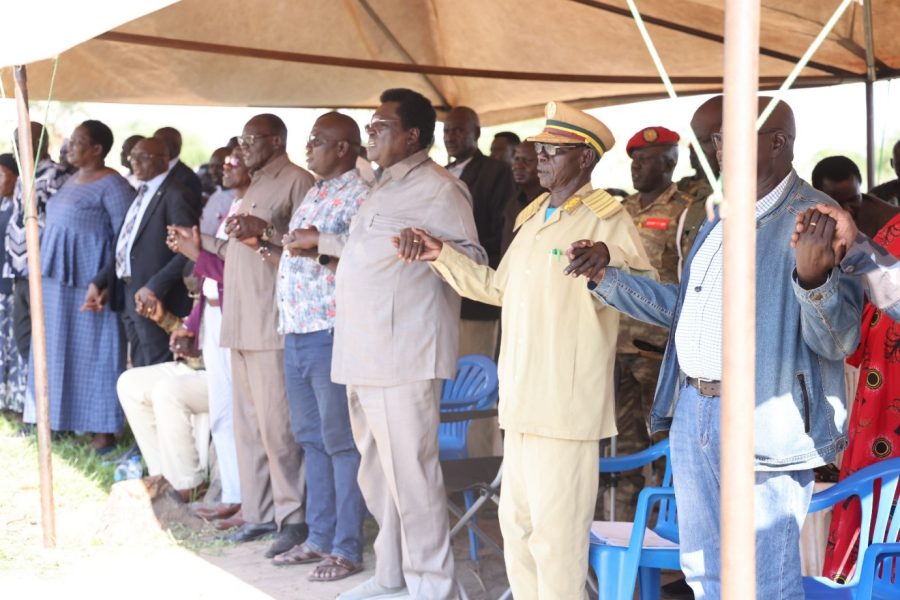
The Jor and Koggi communities in Terekeke Country of Central Equatoria State have reconciled and pledged to coexist peacefully, reaffirming their long-standing social ties.
This reconciliation follows violent clashes over contested grazing land that left at least eight people dead and 18 others injured, consequently displacing many families, predominantly women and children, from Koggi village, with numerous homes torched to the ground.
In response to the crisis, Central Equatoria Governor Augustino Jadalla Kamilo Wani made an urgent visit to the area, calling for calm and promising swift reconciliation efforts.
True to his word, Governor Jadalla officiated a reconciliation ceremony on Monday, uniting the Jor and Koggi communities of Terekeka Payam – the milestone event resultant of a rigorous three-day mediation process.
During the ceremony, Governor Jadalla urged both communities to cease hostilities and return to their traditional coexistence as one family, emphasizing the importance of unity and encouraging the communities to focus on agriculture, especially as the rainy season begins.
Reaffirming the state government’s commitment to harmony, he quoted President Salva Kiir, saying, “Our President said war must stop. He wants you to come together through dialogue because he does not wish for us to fight. You, as the Mundari people, should reflect on your shared interests. Do not harbor hatred among yourselves.”
Jaden Jada, a Member of Parliament representing Terekeka County, also addressed the gathering, urging the youth to refrain from conflict and instead engage in productive activities like farming and development initiatives. “We, the politicians of Terekeka, should stand united regardless of the challenges we face,” he appealed.
Hon. Wani Buyu, Acting Chairman of the Mundari Community, called for the displaced families to return to their homes as a testament to the reconciliation.
“Today, as you have forgiven each other, let this mark a new beginning. This land is for all of you. All the women who were displaced should come back. Thank you for respecting the government’s call for reconciliation. If you took someone’s goat or cow, return them to its owner because now you have reconciled. You are one family,” he said.
Paramount Chief Abraham Gai highlighted the importance of community policing to strengthen law and order at the grassroots level. He stressed the need for accountability to prevent future land disputes.
“Governor, we, the Mundari people, have seen your support since the onset of the conflict. You stood with us, and we pray that God blesses you,” he said.
Asunta Paul, representing the women, appealed for increased humanitarian support for the displaced, particularly women and children. She called for the return of the affected population and suggested measures to prevent future conflicts.
“Let this reconciliation be genuine so that people can return and cultivate. I speak as a woman: the area that caused this conflict should either have police deployed for protection or a school built here so that our children can learn together,” she said.

